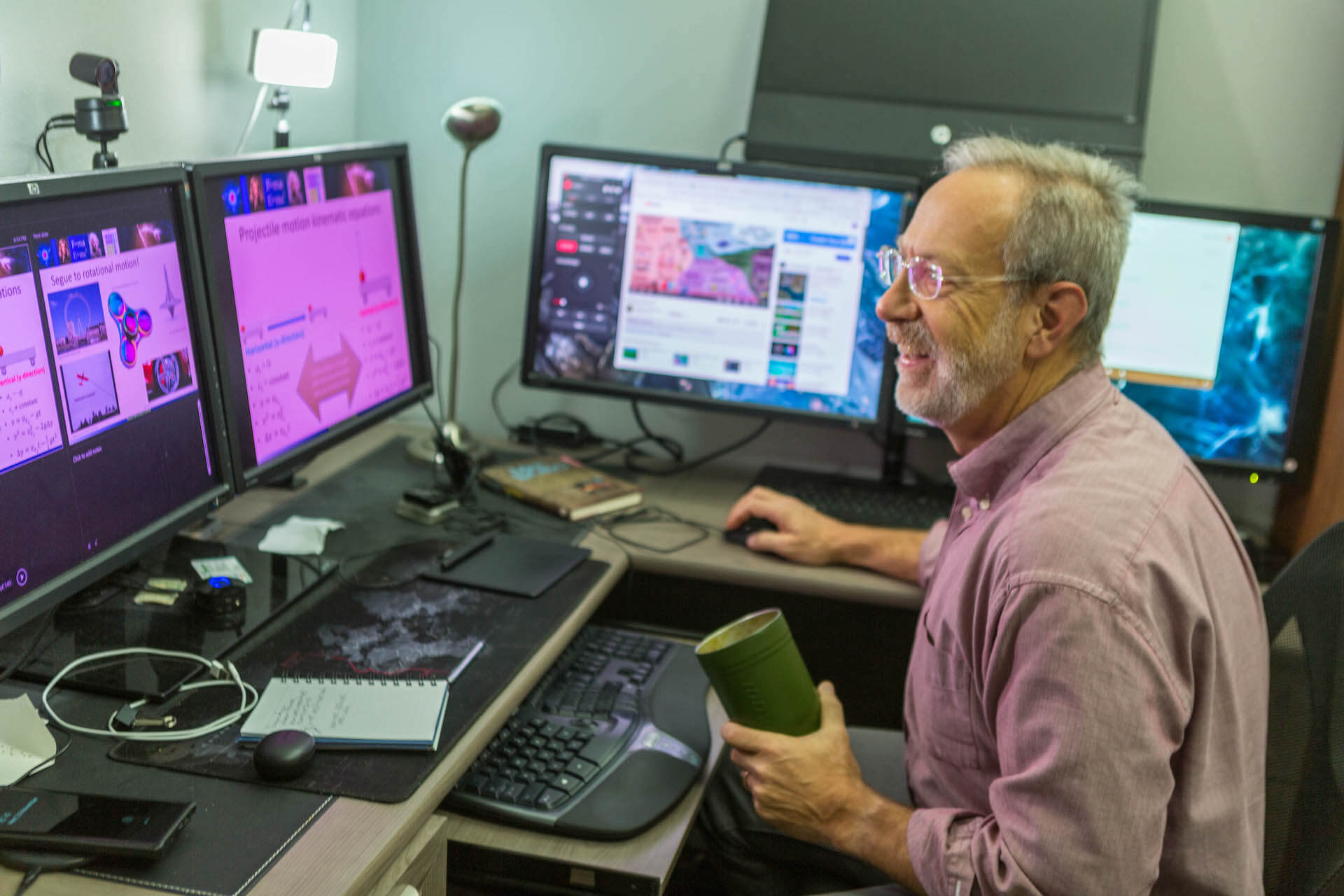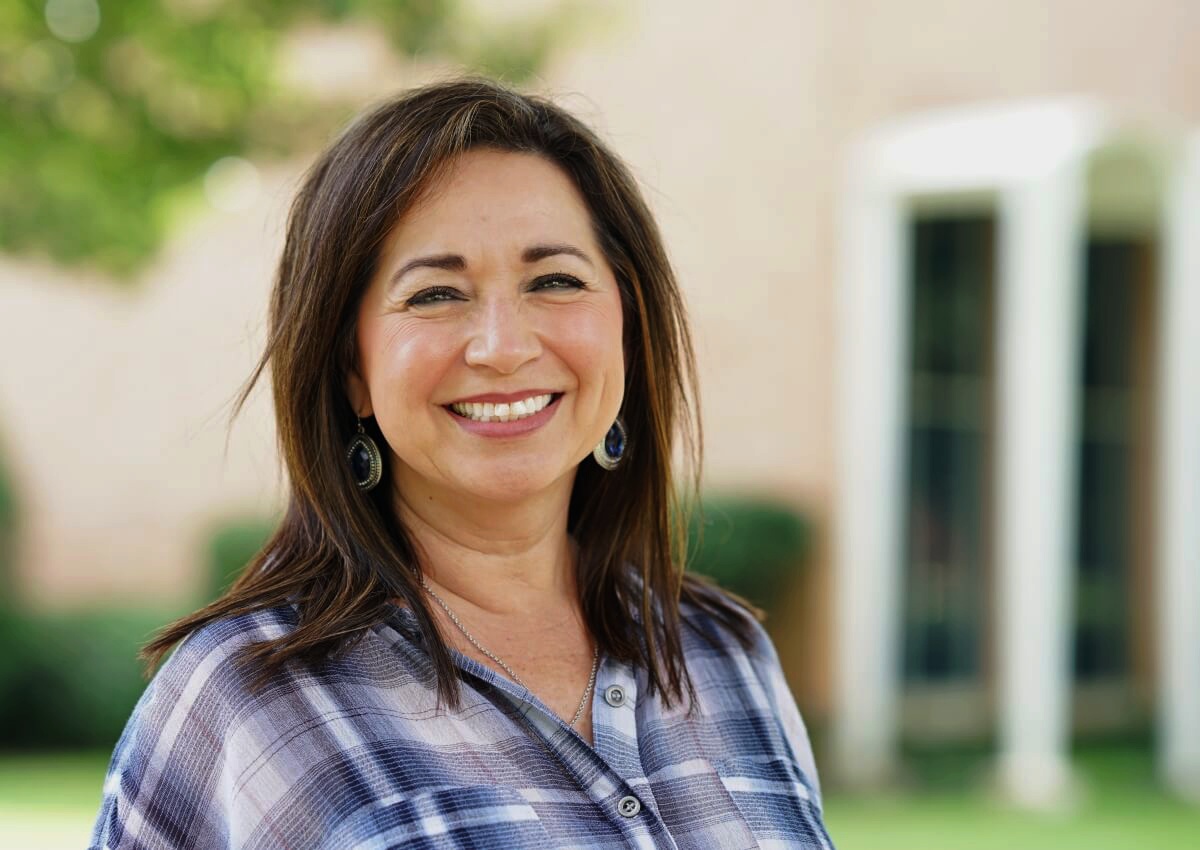Perspectives from a Dual Credit Instructor
by Walt Jurek, M.S., LETU Dual Credit Instructor
What should I pursue in college? That is the question that many LETU Dual Credit students are asking. Dual Credit instructor Walt Jurek teaches a class aimed at helping students gain insight into where God's calling may be leading them. After serving in the United States Air Force, Walt decided to go back to the Air Force Academy to teach. This journey of teaching led him down a path that he would have never foreseen. In a recent interview, Mr. Jurek details parts of his journey and insights through his teaching, in his own words, below.
 Getting to Know Walt
Getting to Know Walt
I’ll start with a bit of background. I served in the Air Force and at some point I felt like I wanted to go back to the Academy to teach. I went back and I taught undergraduate engineering for three years. Along the way we started having a family. We decided that we wanted to homeschool our kids. And so with two degrees in engineering, guess who became the math & science guy? Yeah, that was me. When my oldest was a junior in high school, I said, hey we need to do another science. How about we do physics?
My wife then suggested getting some of the other homeschool families involved because “they’d probably rather have you teach physics than them having to teach it.” I said, sure, no problem. After all, if I can teach classrooms of 80-100 students each semester at the Air Force Academy, 14 students in my living room is manageable.
After about four or five years into it, I had found out that a couple of my former students had gone to college at LeTourneau University. Along the way, I'd gotten, you know, requests from students, ‘Mr. Jurek, can you write us a letter of recommendation?’ And I would agree, but at this point I thought I ought to get to know LeTourneau University, because the only thing that I knew at this point about LeTourneau was what I had heard of this dude named R.G. LeTourneau.
And the only thing I knew about Mr. LeTourneau was that he did the reverse tithe. He decided he was going to give 90 percent of his income and live on 10 percent.
Well, that's not really enough information to say whether or not you should go to that school. Maybe you should. Maybe you shouldn't. I didn't know. So I jumped on the web, found the 800 number, called, and got someone on the phone and I start telling them this story. And they say, oh, you need to talk to our dual credit department. So I get transferred over to the Director of Dual Credit, Sharleen Hunt.
Suddenly I'm filling out a job application and the next thing I know, the next time I am teaching physics, students can take it for dual credit at LeTourneau University.
Pursuit of God-Given Design
I always had remembered in the back of my mind how I have heard so many parents say “oh you’re an engineer; tell me what it’s like because my son/daughter is good with math and physics, so they would be a good engineer.” I’ve heard these words come out of many parents' mouths. Their student is good in math and science, and engineering pays well. All of that is absolutely true. But what I've discovered over the years is that being good in math and science does not always translate as a reliable prerequisite to being a good engineer. There's a whole lot more to being an engineer.
You know God leads us in our lives and as we follow around, we pick up all this stuff. In the Air Force, I did testing evaluation, I did teaching, I did reliability engineering on the B2 bomber. Then, I got out of the Air Force. I worked in a General Motors auto parts manufacturing plant, which is logistics engineering, plus all the other manufacturing aspects of that. Then I went to work for several different computer companies. One of them was a little tiny one in Ohio. Then I came down here to Houston and started working for a company which got bought by Hewlett-Packard. So I've spent a bunch of time in both engineering and business positions in the computer space. I've got this body of knowledge, plus having lived so many places and now I’m teaching dual credit physics, and at this point, God put it on my heart to create this course called 'Should I Be An Engineer?'
And so I sat down with the engineering folks and we walked through the syllabus, and I shared my vision. My vision was held in two objectives for the course. First, I want you to understand what it takes to be a good engineer. How do you become an engineer? What are the classes you're going to take? What are the career fields? All of those things. Second, I want to take you through some guided self-assessments so you can discover your own God-given design so that you and your parents can decide, does my design fit being an engineer?
LeTourneau University has a slogan of ‘Every Workplace, Every Nation.' This is right in line with my vision for this course. Ephesians 2:10 says that we are His workmanship. So if God created us as His workmanship, there must be a reason. So the bigger question I want my students to ask, is a similar question to that of Albert Einstein: “I once thought that if I could ask God one question, I would ask how the universe began, because once I knew that, all the rest is simply equations. But as I got older I became less concerned with how the universe began. Rather, I would want to know why he started the universe. For once I knew that answer, then I would know the purpose of my own life.”
So if there is one question I would love for students to ask, it’s related to that quote and it goes back to the question, 'why am I here?' Because a lot of people, it would seem, would answer this question by saying I am here to convert food into waste into oxygen into CO2, and to be as happy as I can and be warm food when I die. But as followers of Jesus Christ, we know there is more to it than that. Some have distilled it down to glorify God, build His Kingdom, and develop the saints.
My goal is to get students to ask 'why am I here,' and then follow up with a look at Ephesians 2:10. You are His workmanship, created for good works in Christ. It helps them sort through what am I going to spend time on? What am I not going to spend time on? Because that's what this question does for me. The time that we have on this planet counts, and we don’t know what the future holds. Because students often times ask, why do I need to know this? When will I ever use this? You get a degree in X thinking you're going to do Y career. Then we seek to abide and obey, you know, through our relationship with Jesus Christ. When we follow His promptings, He will lead us as we pursue our calling.
Who knows where it's going to go? And so here's the answer that I tell my students: I don't know the future. Neither do you. Let me encourage you, learn all you can as well as you can so that you are prepared to be courageous and at peace in the hands of God for whatever He calls you to do.
